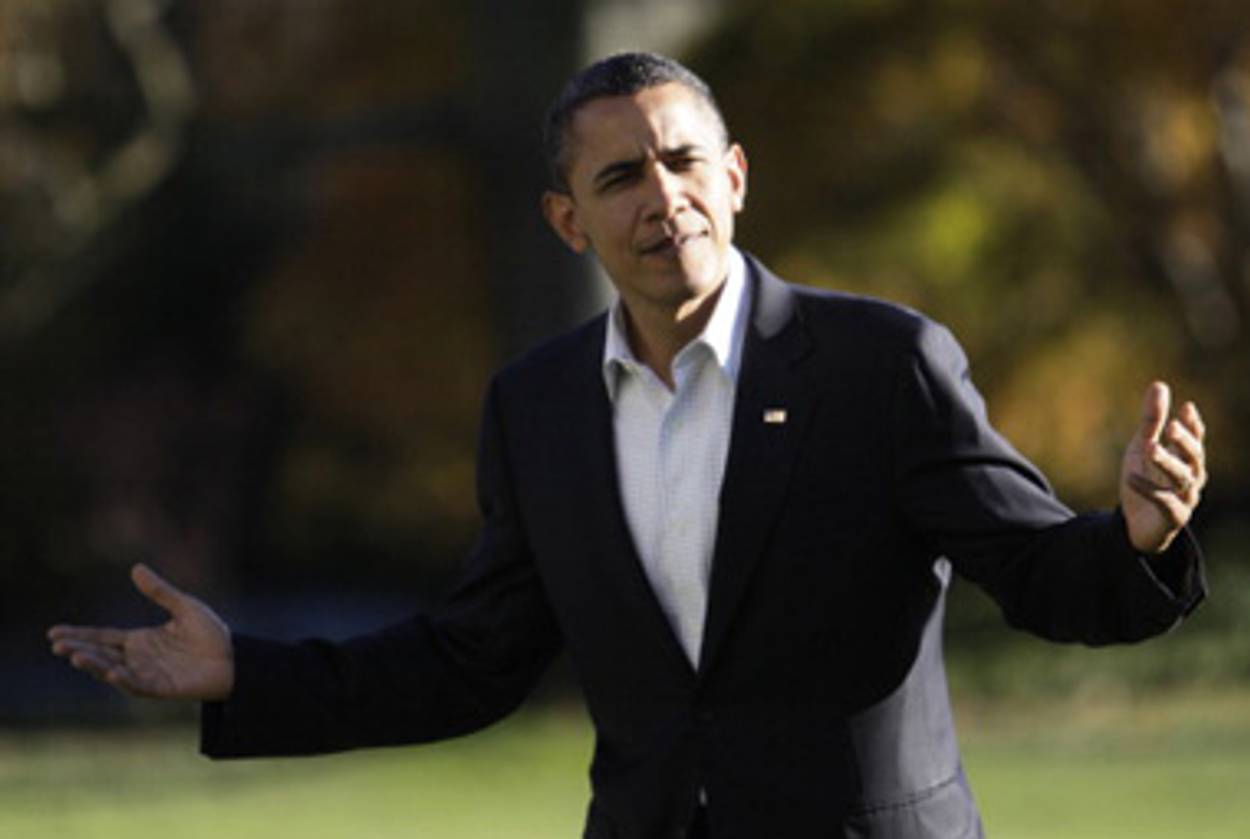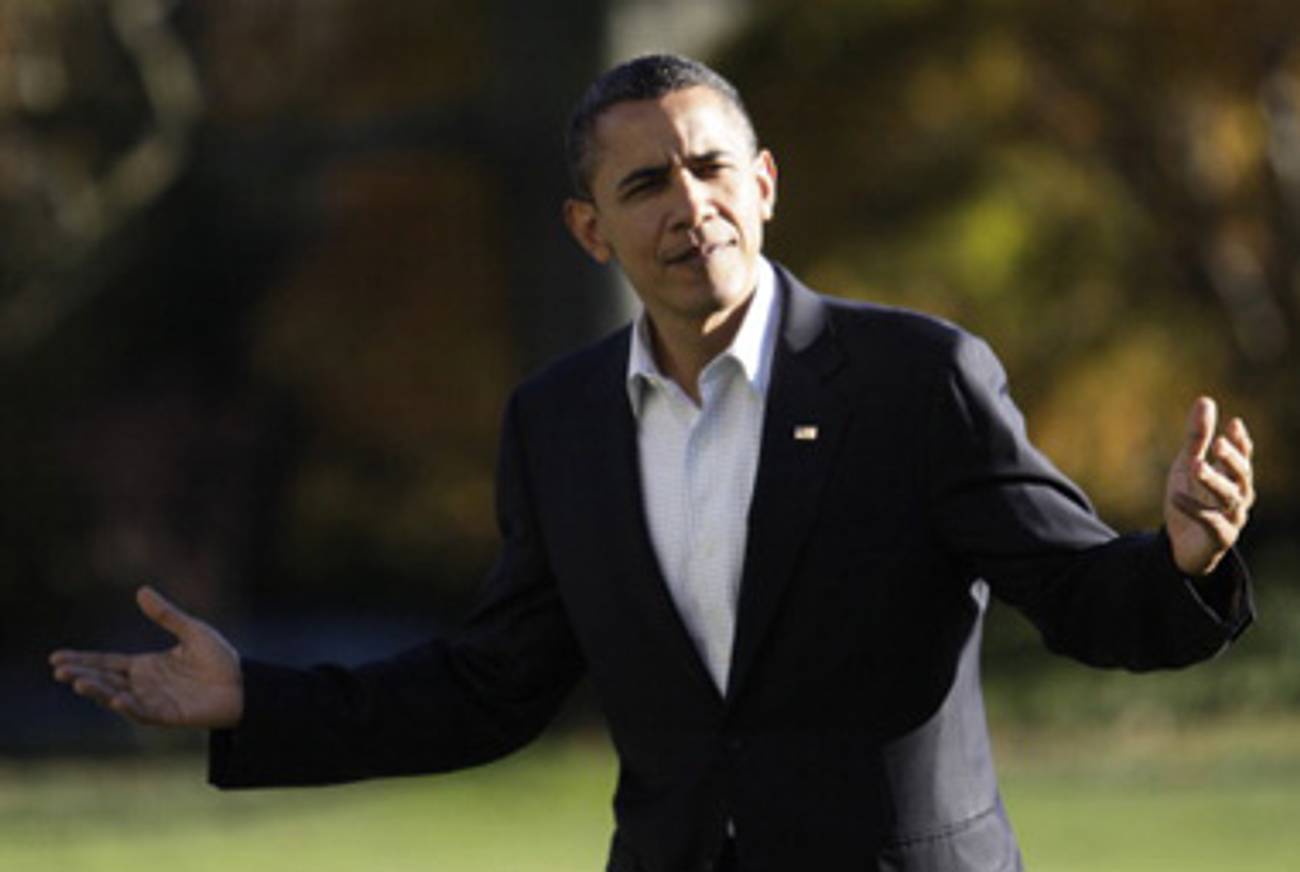For Lack of a Better Option
Why the U.S. cut the freeze-extension deal




Yesterday, the Washington Redskins signed Donovan McNabb, their quarterback who is a week shy of 34, to a massive, five-year contract. The logic behind it could not merely have been the way he was playing: He has not been playing up to standard. The logic, rather, was that he has played well over the course of his long career, and that there is inherent value in stability, and perhaps above all that he is the quarterback they have now, and since you are not guaranteed a quarterback of even remotely his caliber—there are not 32 good quarterbacks in the 32-team NFL—if you have one of the quarterbacks who has proven the ability to deliver consistent success, you go with him, and unless you are prepared to take a radically different direction, at great risk, you double down on him. The problem is that big signings of over-the-hill free agents have been a Redskins tradition for the past 15 years, and it is part of why they have one won playoff game in that time. As Marc Lynch described the signing, “The deal seems to epitomize the unimaginative, tactics-focused” approach.
Whoops! Lynch wasn’t talking about the McNabb deal. Over the weekend, the United States offered Israel a package of security and aid guarantees in exchange for a 90-day extension of the prior ten-month construction freeze in the West Bank (though not East Jerusalem). Should Prime Minister Netanyahu’s cabinet approve the deal, Israel gets 20 high-tech jets plus further military aid; a promise that the U.S. will veto any unilateral Palestinian statehood at the United Nations; and a pledge not to ask for a further extension.
Why should this freeze be different from the previous freeze—when nothing was accomplished beyond a few perfunctory and preliminary direct talks between the two sides? You can talk yourself into reasons why: The notion that talks this round will focus on borders, not settlements—which (as Jeffrey Goldberg pointed out the other day) is the more pressing issue, and one that will actually also help resolve the settlement issue—is promising. But you can talk yourself into the McNabb extension, too (he is championship-caliber, he just needs pass-catchers and a better offensive line, and locking him down gives the Skins the time to build those things, etc).
At base, the deal is, as the Washington Post astutely reports, “A triumph of hope over experience.” Nobody could possibly think this is a good option. What one could think is that, given U.S. history as Israel’s patron (and its basically unquestionable status) as well as U.S. regional interests (Israel was probably due for a military upgrade for Iran-related reasons anyway), getting the freeze extended was probably the best possible option, even if on its face it seems like (to mix football metaphors) Charlie Brown lining up one more time to kick the ball that Lucy will inevitably yank away. (Not to be totally unfair: The United States has admitted that the year-long timeframe for peace it established a few months ago was probably over-optimistic.)
But don’t only ask me! From the left, Bernard Avishai argues that focusing on borders, while perhaps strategically wise, is a tactical non-starter, because a final discussion about borders is the last thing Israel’s powerful right wants, or will stand for. For the realists, Aaron David Miller notes that talking about borders when Jerusalem is seemingly off-the-table may be worse than worthless. Roger Cohen mentions that the split among the Palestinians, chiefly between Fatah and Hamas, makes discussion of a peace deal absurd. (The Fatah-run Palestinian Authority is among the extension’s largest skeptics.) Christopher Hitchens takes a closer look at exactly whom the deal is being done with—namely, the right-wing crazies in Netanyahu’s own government.
And if (if? ha!) the deal doesn’t work? There will be talk (as Lynch floats) of a radical new approach, or some sort of thing. But in fact, the deal has the effect of locking the United States and Israel into a closer partnership, more strongly binding their interests together; it makes it less likely that the U.S. will fundamentally change its overarching Mideast strategy, which contains as its pillar the fact that Israel is a number-one regional ally.
There will still be issues in the Mideast to deal with even if no peace is reached, just as there will still be 16 games to play each season (well, barring a lockout next year, anyway). We will need an ally, and the Redskins will need a quarterback. The Skins are paying a guy who took one team to five conference championships a whole lot of money, so they may as well start him. There will be disappointments—last night’s utter butt-kicking, by McNabb’s former team, comes to mind. There will also be triumphs; but they will be small. Talk to me when the Redskins are playing in February; and talk to me when all the pieces are in place—a willing Israeli government, a Palestinian partner capable of cutting the deals that would need to be cut, less Israeli fear about Iran—and a real peace deal can be made. Til then, I’m just looking for a few Sundays when the situation will seem a little less bad than it really is.
A 90-Day Bet on Mideast Peace Talks [NYT]
Analysis: U.S. Pinning Its Mideast Hopes on 90-Day Settlement Freeze [WP]
Marc Tracy is a staff writer at The New Republic, and was previously a staff writer at Tablet. He tweets @marcatracy.